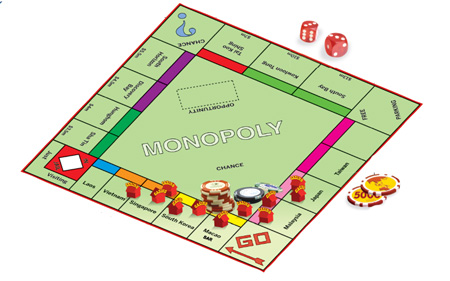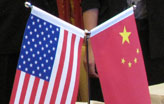Economy
Big Bucks in casinos
Updated: 2011-07-15 13:30
By Alfred Romann and Joanne Lee (China Daily European Weekly)
Huge pool of gamblers tempts many asian countries into putting money on casino business
Countries and regions across Asia-Pacific are building casinos at an unprecedented pace. They have set their eyes on traveling gamblers and their money, but many are doing everything to keep their own citizens away from the tables. The name of the game is money. Judging by surging revenues, it's clear that they are attracting a growing number of people. The Macao special administrative region (SAR) of China, Singapore and South Korea are prime examples. The first two are making money hand over fist as gamblers flock to glitzy new mega resorts. The third is looking to expand its relatively small industry.
Everybody, it seems, is happy with the money that flows and flies in from casinos. Sheldon Adelson, chairman of the Las Vegas Sands that owns the Venetian and the Sands Macao as well as the Marina Bay Sands in Singapore, is not surprised by the rapid growth in Singapore, and expects it to continue skyrocketing.
|
 |
Politicians in Japan want to get in on the action with new legislation and Taiwan is also considering doing something.
Analysts have upgraded most significant gaming operations across the region. Opening a casino, it seems, is a license to print money, and the skies ahead appear clear.
"The gambling industry in Asia will continue to grow in the next three years," says Lantis Li, a gaming analyst at Capital Group in Hong Kong. "The market is not yet mature, so it is expected that more casinos will open across the region."
The only cloud, if there is one, is the muted concern about the potential impact of so much access to gambling in the region. There is some discussion about what casinos can do to a culture that seems to have a predilection for gambling but, generally speaking, these concerns have been addressed by legislation barring locals from entering casinos, or public awareness campaigns.
Barriers to limit access to domestic markets don't appear to be a deterrent to casino and resort developers that make more money in Asia than in Europe, and are set to overtake the US in the next couple of years.
The US casino industry accounted for 57 percent of the global market in 2009 with revenues of $57.2 billion (40.6 billion euros) while the Asia-Pacific market was worth $21.8 billion, according to a report in December by PricewaterhouseCoopers (PwC).
That was before Singapore opened its large casinos (which made more than $5 billion last year) and new properties opened in Macao, including the new Galaxy mega-resort on May 15.
Casino gaming revenue across Asia-Pacific jumped 27.7 percent in 2010, compared with just 2.7 percent growth in the US. Between 2010 and 2014, gaming revenues in the region should grow at an average of 23.6 percent per year.
By 2014, Macao alone will generate $45 billion in gambling revenue, three times the size of Nevada - the US state where Las Vegas is. That same year, Singapore's revenues could hit $8 billion, up from zero before 2010, predicts PwC.
Interestingly, the resorts that are coming up are considered unnecessarily huge.
The model that has succeeded in Las Vegas in generating revenues from attractions other than gambling does not appear to translate. In Asia, gamblers go to casinos to gamble. The rest are fringe benefits, but have not done much to boost the bottom line, at least not yet.
Macao, a city consisting of three main islands seemingly built entirely around its world-renowned casinos and mega-resorts, has been the most successful gambling hub. In 2006, Macao overtook Las Vegas as the largest single gambling market in the world. Last year, it earned four times as much. This year, it could be five times.
Even as Macao's casinos grow beyond what anyone would have considered likely just a few years ago, new destinations are emerging to tap what seems to be a never-ending pool of gaming enthusiasts across the region.
Before 2010, Macao SAR, Australia and South Korea accounted for 92 percent of casino revenues. In its first year, Singapore's revenues more than doubled South Korea's.
Resorts World Sentosa and Marina Bay Sands opened in Singapore in January and April 2010. Both had a very impressive start. Resorts World Sentosa, the flagship development of Genting Singapore, recorded $774.8 million in its first nine months. Marina Bay Sands reported revenue of $485.9 million in its first full quarter of operation.
PwC estimates that the revenues will rise to $8.3 billion by 2014. Some analysts also expect Singapore's gaming revenues last year to rival Las Vegas'. Most visitors to Singapore are from Australia, Indonesia, India, and of course, China. About 25,000 people visit the Marina Bay Sands every day.
Now in the process of speeding up the development of new casinos, South Korea has 16 foreigners-only casinos and one for locals. In April, the Korea Tourism Organization appointed a board of experts to develop the industry. According to Gambling Compliance, an industry publication, the board will recommend that South Korea issue five or six integrated casino resort licenses around the country starting with Incheon, Busan and Jeju.
The smoky old rooms hidden in two-star hotels are vanishing but the serious money still comes from gambling. The peripherals - restaurants, boutiques, nightclubs, hotels and swimming pools - are just value additions, but important sources of revenue, too.
The core business, however, remains the gaming floors.
"Casinos make the core revenue of the companies," says Hayman Chiu, a gaming analyst at Cinda International. "Among all the resorts and hotels in Macao, hotels and shopping arcades only take up a small amount of interest in the business. The core revenue is still relying on the casinos."
The industry in Macao is growing by 30 percent a year, says Chiu, and it is still dominated by Stanley Ho's conglomerate SJM which has about a third of the market share. Other players like the Sands, the Wynn and Galaxy have invested significantly to expand their presence across the region. At SJM general revenue grew 70 percent last year while the hotel and catering business grew 60 percent.
MGM Grand Paradise, which operates the MGM resort in Macao, made profits last year (the first since 2007) and raised about $1.4 billion in net proceeds from an initial public offering on Hong Kong's stock exchange in early June.
The MGM is a joint venture between MGM Resorts and Ho's daughter, Pansy Ho Chiu-king. About two thirds of MGM's revenue came from the casino floor while the turnover from VIP gamblers jumped 48.5 percent, about double the turnover growth registered by mass-market tables but slightly less than the slot machines. In other words, the rich are gambling more.
In the first quarter of this year, the Wynn Macao saw its net revenues rise 47 percent. About 70 percent of Las Vegas-based Wynn Resorts net revenues came from its Macao operations. Non-casino revenues grew 50 percent to $94 million, a fraction of overall net revenues of $1.26 billion for the quarter.
Today's Macao is very much a work in progress. Mega resorts involving multiple hotels, large casino floors, impressive and expensive shows and top-flight restaurants are being built. The latest example is the Galaxy Macao, a resort in the Cotai strip across the street from the Venetian. It opened on May 15.
The Galaxy Macao cost HK$14.9 billion (1.36 billion euros) and spans 550,000 square meters. It will include three hotels with 1,500 rooms, 250 suites and 10 floating villas and a deck where 350 tons of sand was dumped around a 4,000 sq m wave pool - the largest in the world. It also incorporates 50 restaurants and various nightclubs, nine cinema screens and a retail boulevard.
Macao's gaming industry is growing at an average 30 percent a year, says Chiu. Besides Ho's SJM group, the other big players are the Sands, the Wynn and the Galaxy. Adelson's Las Vegas Sands earned record revenues from its operations in the region.
Traveling gamblers - not locals - drive casino growth in Macao, Singapore and most other destinations in the region. And the majority of these gamblers come from the Chinese mainland. They flock to Macao, Singapore, South Korea and new destinations such as Cambodia, Thailand, the Philippines and soon, will head for Vietnam.
They have significant spending power and eagerness to spend time at the tables.
"Anywhere you find a casino, you can find Chinese people," says Wang Xuehong, director of Peking University's Center for Lottery Studies.
The number of Chinese mainland visitors to Singapore jumped 33 percent in January of this year while the number of visitors from Hong Kong grew 51 percent. Analysts at CLSA, a consultancy firm, expect the number of Chinese mainland visitors to South Korea to grow 34 percent this year.
Chinese mainland visitors spend about 26 percent more, on average, than others. CLSA expected the number of visitors to casinos in South Korea to grow by 15.5 percent in 2010 but the number of Chinese mainland casino visitors was expected to jump 57.5 percent. From 2012, the Chinese mainland should be the largest source of gamblers in South Korea.
This growing number of Chinese gamblers underlines an irony. The governments of course want the money the gambling industry generates, but don't want their own populations to be hit by the social ills that come with it. Macao received almost 25 million visitors in 2010. The Chinese mainland and Hong Kong accounted for 22 million of them. Many Chinese mainlanders flock to Macao because it's the only place in China where casino gaming is legal.
Despite the omnipresence of the Chinese gambler, the government has been careful to keep casinos outside of the Chinese mainland even as it allows gaming to expand.
Wang believes the Chinese mainland is gradually opening up its gaming industry. The most visible example is the slowly growing lottery business that is enormous thanks to the country's sheer size.
"China has already taken its first step on the lottery business and it will follow the global trend. Chinese people have to travel abroad to gamble and money has been flowing into the other countries. Sooner or later, the Chinese mainland will set up its own casinos in the country," Wang says.

Specials

China-US Governors Forum
The first China-US Governors Forum is held July 15 in the Salt Lake City, the United States.

My China story
Foreign readers are invited to share your China stories.

Rare earths export quota
China kept its export quota at almost the same level as last year.